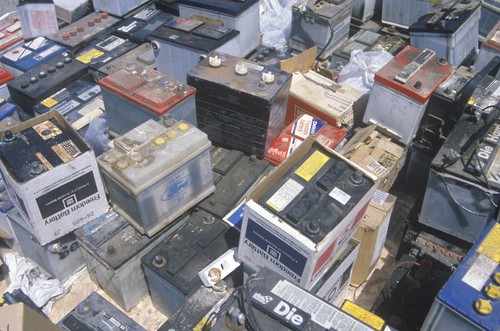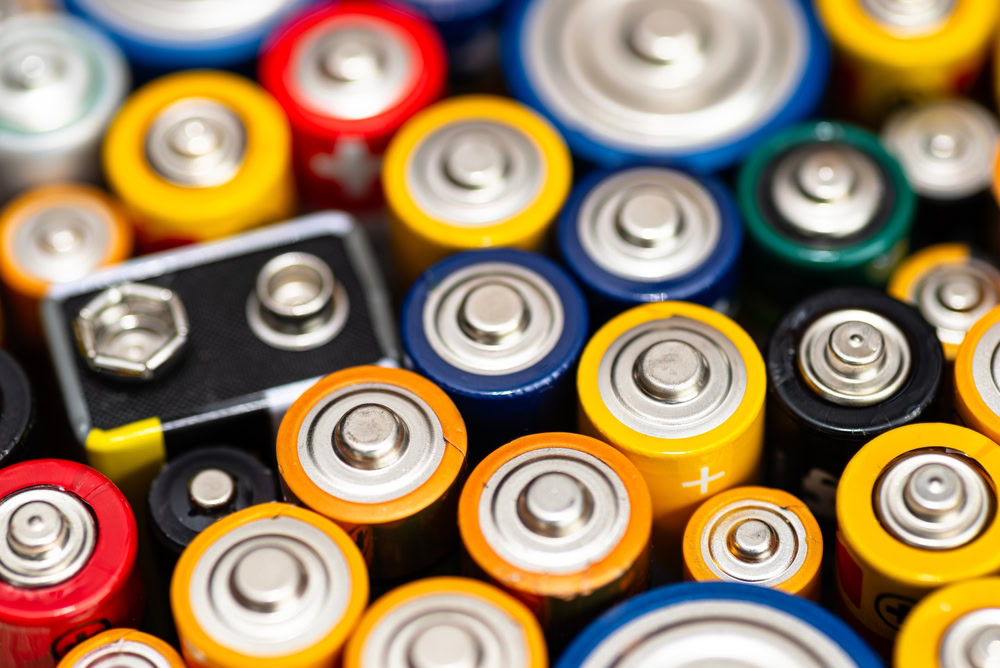Figures published by the Environment Agency this week show that overall a total of 14,879 tonnes of waste portable batteries were collected for recycling throughout the whole of 2015, with 4,022 tonnes collected in the final quarter.

This means that the UK is just shy of its overall 40% collection target for the year – recording an overall collection rate of 39.97% – although schemes have until the end of May to post evidence in order to meet the target.
Of the tonnages reported so far, the majority – 2,507 tonnes – comprised of lead acid batteries, while nickel cadmium (125 tonnes) and ‘other’ batteries (1,388 tonnes) made up the remaining proportion.
This means that 62% of the overall tonnage of batteries collected in the last quarter of the year was made up of lead acid batteries, compared to 78% in the first quarter of the year.
Tonnage
Overall however, lead acid comprised 71% of the total tonnage of batteries collected for 2015 despite only making up around 6% of the overall tonnage of new batteries placed onto the market.
The shift in the proportion of lead acid batteries collected for recycling comes ahead of changes to the way that manufacturers and recyclers are required to classify portable batteries, which sees waste batteries weighing more than 4kg no longer classed as ‘portable’.
Portable batteries are the only category to which a recycling target has been attached – and battery recyclers have long argued that as they are often unaware of the original use of some lead acid batteries, it is impossible to determine if they fall into the industrial or portable classification.
Lead acid
Therefore, it has been suggested that incorrect classification of lead acid batteries could be skewing data on the number of portable batteries collected for recycling – with much of the overall target being met by non-obligated batteries.
While the rule change did not officially take effect until January 2016 – it is thought that compliance schemes and battery recyclers had moved to bed in the changes ahead of the January changeover.

Commenting on the data, David Reynolds, general manager of BatteryBack, said: “It is great to see how far the UK has come since 2010 when the battery regulations were introduced. However, the UK needs to collect and recycle even more batteries, especially since the reduction in lead acid evidence and we are developing communication and awareness campaigns with our members. The small shortfall against the target may be a worry for some in Defra as 2016 is a European Directive target that the UK must achieve.”
Collection
Close attention will be paid to the next set of data published by the Environment Agency relating to the first quarter of 2016, when it is expected that greater effort will need to be made to increase the capture of lighter portable batteries – including those typically discarded by householders – in order to meet the targets.
Robbie Staniforth, commercial manager at compliance scheme ecosurety, said: “The good news story is that we have started the shift away from the collection of lead acid towards more collection of actual household batteries. The sector has known this is coming for a couple of years and the market place has positioned itself knowing we will need to put more effort into the logistics of collecting batteries.”
Figures published by Defra ahead of the switch also suggested that the cost of collecting and processing portable batteries would likely increase from around £1,050 to close to £1,400 per tonne (see letsrecycle.com story).







Subscribe for free